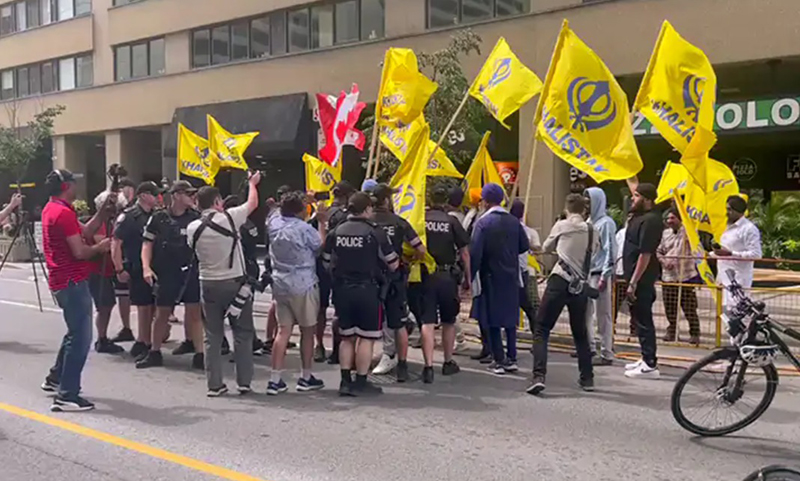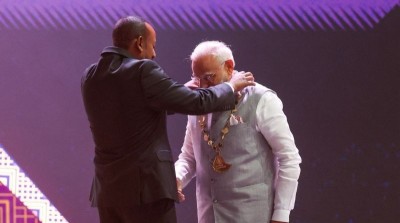 Khalistan
Khalistan
Khalistani demonstrations losing steam globally
In recent months, particularly around Indian Independence Day, pro-Khalistani groups have intensified their anti-India protests in countries like the US, Canada, and the UK.
However, this surge in demonstrations seems to be backfiring.
Many Sikhs living in these nations are growing increasingly weary of these actions, leading to heightened tensions and even clashes.
In Canada, for instance, the pro-Khalistani protests have dwindled in numbers. Demonstrations that once drew sizable crowds now see only a handful of activists—sometimes as few as 20 to 30—gathering outside Indian consulates.
On August 16, confrontations between pro-India and pro-Khalistani extremists erupted at Malton Westwood Plaza in Mississauga, Ontario. The clash became so volatile that the Peel Regional Police had to step in to restore order.
Similarly, at the Laxmi Narayan Temple in Surrey, British Columbia, a pro-India rally organized by the temple’s management was interrupted by radical pro-Khalistani elements.
The confrontation led to heated arguments and flag-snatching, prompting police intervention to separate the groups.
In Vancouver, an event commemorating the death anniversary of Hardeep Singh Nijjar, organized by pro-Khalistani elements in front of the Indian Consulate, attracted only a modest crowd of 15-16 people.
This turnout starkly contrasts with the once-anticipated large gatherings.
Across the Atlantic in Germany, the World Sikh Parliament and Babbar Khalsa International attempted to stage a protest in front of the Indian Consulate in Frankfurt.
However, local Sikh participation was dismally low, with only 14 to 15 activists showing up. In a bid to bolster their numbers, the organizers enlisted Pakistani proxies such as Anser Butt and Rehmat Ali.
This move drew a counter-demonstration from pro-India Sikhs, who displayed the Indian flag in response.
The efforts of a handful of desperate, pro-Khalistani groups to stage anti-India protests appear increasingly ineffective.
The once-vocal demonstrations now struggle to muster significant support, while the pro-India Sikh community’s counteractions have proven effective in neutralizing the impact of these rallies.
The decline in both participation and enthusiasm for these protests suggests that the pro-Khalistani strategy might be losing its potency, ultimately serving to alienate rather than rally support.
(Text and images courtesy: Khalsavox.com)
Support Our Journalism
We cannot do without you.. your contribution supports unbiased journalism
IBNS is not driven by any ism- not wokeism, not racism, not skewed secularism, not hyper right-wing or left liberal ideals, nor by any hardline religious beliefs or hyper nationalism. We want to serve you good old objective news, as they are. We do not judge or preach. We let people decide for themselves. We only try to present factual and well-sourced news.





